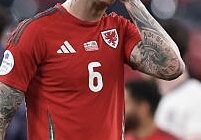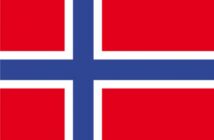AFCON finally came to an end with a wonderful closing ceremony to celebrate the true essence of Africa and what makes it a unique continent.
Say what you like about Cameroon and some of the issues before and during the competition, this was a wonderful spectacle for African football and how much it has grown in leaps and bounds over the last few years, with the gap considerably closer between the so-called superpowers and the minnows.
There is a cliché that is bounced around in Nigeria, “There are no longer minnows in world football.” The minnows still exist but many are coming up through the ashes and developing their football with a more robust approach, focusing on grassroots football development and investments in infrastructure.
This AFCON provided us with several countries breaking the glass ceiling, demonstrating their ability to compete with the ”big boys”. This is because more countries have access to export their players to mainland Europe to better-organized leagues, invariably closing the otherwise or previously wide gap.
The Surprises
The likes of Comoros, Cape Verde, Malawi, Equatorial Guinea and Gambia threatened to destroy the established order of African football with their exploits at this AFCON. It was refreshing to watch these teams play and punch above their weight, demonstrating the universal nature of the beautiful game and why we have come to love it so much.
Many followers of African football may not have been surprised by these exploits as some have been pushing the envelope from the qualification rounds of the AFCON and the World Cup. Gambia with their explosive counter-attacking style had been ruffling feathers and Cape Verde had just months before the AFCON dashed the hopes of Nigerian fans by holding the Super Eagles to a draw in Lagos.
Comoros had been gaining ground gradually and so had Malawi especially within the COSAFA region, with Equatorial Guinea were more or less seeking to get into the next phase after the previous quarter-final exits at previous AFCON’s. It is time to take a keen interest in what these countries are doing differently to cause a steer as they can no longer be ignored.
The Flops
Every disappointment is a blessing for some other person, in this case, a country. Ghana and Algeria were huge disappointments at this AFCON. The expectation was very high for Algeria especially, fresh off winning the Arab Cup and maintaining their unbeaten record that had existed for over three years. Both countries finished rock bottom of their groups with a solitary one point on the board for their efforts.
The Nearly Men
These are teams that were impressive during the group stage but could not find the energy and resolve to go even further. Nigeria, Morocco and Ivory Coast comfortably fall into this category. It was quite disappointing watching the Super Eagles being dumped out by the underwhelming Tunisians.
After a perfect and flawless group stage, Nigeria looked like the best-equipped side with their impressive win against eventual finalist Egypt in their first group game. Morocco looked like this was going to be their year as well after an impressive group stage passage just like Nigeria, but frustrated by North African rivals Egypt in an ill-tempered encounter in the quarter-finals saw them bow out of the competition.
The Elephants of Cote D’Ivoire also lost their goal-scoring boots after their 4-1 humiliation of Algeria and they looked irresistible going forward but fell at the hands of the plucky and pragmatic Egyptians. The Ivorians can look ahead to the next AFCON on home soil and hope to add to their two AFCON triumphs.
The Final Four
Burkina Faso gave a good account of themselves and they would have loved to get to the final just like they did in 2013, but the Senegalese super-power stood in the way of their passage to the final. Cameroon scored the most goals but fell at the point of their toughest test as the plucky Egyptians again dashed the hopes of the host.
For the Egyptians, many did not give them much of a chance after losing their opening game to Nigeria. They looked pragmatic, raising questions of Mohamed Salah’s adaptability and suitability outside Liverpool.
The Pharaohs did what they had to do to get to the final as every knockout game went to extra time and three straight penalty shootouts. This is not the Egypt we know, but then in tournament football, you just do what you have to do to get the desired return.
Senegal finally have a golden generation that fulfilled its potential. This triumph is a culmination of many years of work under the much-criticized Aliou Cisse. He finally extracted full value from this hugely talented side and the whole of Senegal can celebrate finally joining Africa’s football elite. The next phase will be if they can dominate like Egypt, Cameroon and Ghana have done with this competition, but we just have to wait and see.
AFCON Best 11
Mohammed Abou Gabal (Egypt); Achraf Hakimi (Morocco), Ghislain Konan (Ivory Coast), Ahmed Diallo (Senegal), Mohamed Abdelmonem (Egypt); Colin Fai (Cameroon), Gustavo Sangaré (Burkina Faso), Idris Gana Gueye (Senegal); Karl Toko Ekambi (Cameroon), Sadio Mane (Senegal), Vincent Aboubakar (Cameroon)
Notable Mentions
Moses Simon (Nigeria), Nicolas Pepe (Ivory Coast), Edmond Tapsoda (Burkina Faso), Blati Toure (Burkina Faso), Saliou Ciss (Senegal), Omar Kamal (Egypt), Ibrahim Sangare (Ivory Coast), Amadou Haidara (Mali), Bertrand Traore (Burkina Faso), Sofiane Boufal (Morocco)
Follow us on Twitter @ProstInt
![Prost International [PINT]](https://prostinternational.com/wp-content/uploads/2021/08/PINTtFontLogoRoboto1536x78.jpg)


